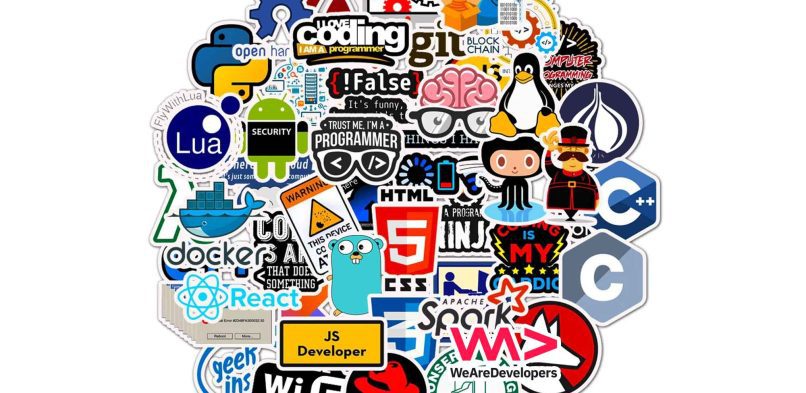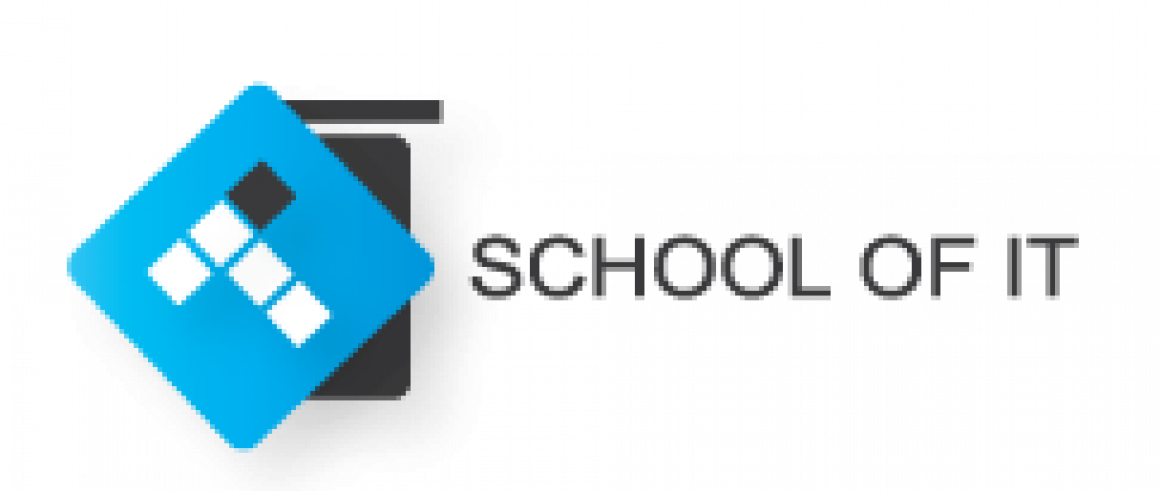Top 10 Best Programming Languages To Learn in 2024

Top 10 Best Programming Languages To Learn in 2024
August 12, 2024 Comments Off on Top 10 Best Programming Languages To Learn in 2024Top 10 Best Programming Languages To Learn in 2024
Top 10 Best Programming Languages To Learn in 2024
Introduction
Welcome to the dynamic world of programming! As we approach 2024, the tech landscape continues to evolve rapidly, influenced heavily by market demands, emerging cyber threats, and the ongoing digital transformation in various sectors. Whether you’re just starting out or looking to enhance your IT career, selecting the right programming languages to master is crucial. This guide highlights the top 10 programming languages that will not only enhance your skillset but also improve your prospects in the competitive job market. Dive in to find out which languages will be most beneficial for you to learn in the coming year!
Importance of Learning Programming Languages in 2024
Relevance of skills in the current job market
In the constantly evolving tech industry, mastering programming languages is more crucial than ever. As we move into 2024, the demand for skilled programmers continues to skyrocket, influenced by digital transformation across all sectors. Employers are on the lookout for professionals who are not only proficient in current technologies but are also adaptable to learn and implement new languages swiftly. This adaptability can lead to higher job security and better career progression opportunities, making programming skills pivotal for anyone looking to thrive in today’s job market.
Addressing the increasing cyber threats
With an alarming rise in cyber threats worldwide, the importance of programming knowledge, especially in cybersecurity, cannot be overstated. Programming languages like Python, Java, and C# have extensive applications in developing software that can safeguard data and prevent malicious attacks. By understanding and using these languages, programmers can create more robust security protocols and contribute to safer IT environments. This skill is particularly valuable in industries such as finance, healthcare, and government, where data protection is paramount.
Opportunities for IT careers
Learning programming languages opens up a vast array of career paths in the IT sector. From software development and data analysis to artificial intelligence and cloud computing, the opportunities are vast. Specializing in high-demand languages can lead to roles in prestigious companies and innovative startups alike. Moreover, IT professionals with versatile programming skills are often considered for leadership roles, as they can oversee diverse teams and projects, ensuring organizational goals are met efficiently.
Benefits of attending cybersecurity bootcamps
Enrolling in a cybersecurity bootcamp can be a transformative experience for those looking to specialize in programming for security. These bootcamps typically focus on the most relevant aspects of cybersecurity, empowering students with the skills needed to tackle current cyber threats. Attendees can learn from experienced instructors and gain hands-on experience through project-based learning and real-world scenarios. Moreover, many bootcamps also assist with job placements, providing a significant advantage in the competitive IT job market.
Criteria for Selecting the Best Programming Languages
 Image courtesy: Unsplash
Image courtesy: Unsplash
Popularity and demand in the industry
When picking a programming language to learn in 2024, considering its popularity and demand is crucial. Languages like Python, JavaScript, and SQL consistently top the charts due to their widespread usage across various applications—from web development to data science. Learning these languages can significantly enhance employability, as many organizations prioritize candidates who are proficient in these widely-used languages.
Growth potential and future outlook
Another essential criterion for selecting a programming language is its growth potential and future outlook. Technologies are rapidly evolving, and certain languages are at the forefront of innovation. For instance, Python’s role in AI and machine learning signifies its long-term relevance. Similarly, Kotlin, used primarily for Android app development, continues to grow as mobile platforms expand. Opting for languages that are aligned with future tech trends can provide a competitive edge in the job market.
Versatility and applicability across different domains
The versatility of a programming language enhances its attractiveness. Languages that can be used across different platforms and for various purposes offer more career flexibility. For example, JavaScript’s ability to run on both client-side and server-side makes it invaluable for full-stack development. Similarly, C++ is utilized in game development, systems programming, and real-time systems, highlighting its broad applicability. Choosing a language that serves multiple domains can open numerous doors in both current and future tech landscapes.
Top 10 Programming Languages To Learn in 2024
Python
Python continues to be a heavyweight in the programming world, heralded for its simplicity and readability, making it a perfect entry point for beginners. Its versatility extends from web development to data science and artificial intelligence. Major tech companies heavily rely on Python, and its robust libraries and frameworks, like Django and Flask, are crucial for modern web development and data management tasks.
JavaScript
As the backbone of the internet, JavaScript is essential for anyone looking to develop interactive websites. Its universality on the web makes it indispensable, and frameworks like React, Angular, and Vue.js have only enhanced its demand. Moreover, JavaScript’s role in front-end development, paired with Node.js for server-side code, offers a full-stack development experience, which is highly sought after in the job market.
Java
Java has been a top player in the industry for decades, known for its portability across different platforms thanks to the JVM (Java Virtual Machine). It is widely used in large systems, Android app development, and backend environments. Java’s strong memory management and built-in garbage collection mechanisms make it a stable choice for complex, high-load applications.
C++
If high performance and control over system resources are required, C++ is the go-to language. It’s extensively used in game development, real-time systems, and software requiring high-efficiency execution like desktop applications and operating systems. Learning C++ offers deep insights into how systems operate at a hardware level.
C#
Developed by Microsoft, C# is an integral part of the .NET framework, making it crucial for applications running on Windows. It’s particularly strong in building desktop applications, games using Unity, and, more recently, cross-platform mobile applications via Xamarin. C# developers are in high demand for their ability to integrate seamlessly into myriad Microsoft-supported environments and platforms.
Ruby
Ruby, particularly famous for its Rails framework, is another strong candidate for beginners due to its elegantly simple syntax. It promotes high productivity and is often used in startups and tech companies for its rapid development capability. Ruby on Rails has laid the groundwork for many high-profile platforms, indicating the sustained relevance of this language in web development.
Swift
Swift is the cornerstone of iOS and macOS application development. Introduced by Apple as a replacement for Objective-C, Swift has seen a meteoric rise in popularity. Its concise syntax and memory safety mechanisms make it an ideal choice for developers looking to build robust and intuitive applications for Apple devices.
Kotlin
Championed as an alternative to Java for Android development, Kotlin addresses many of the pitfalls of Java, such as verbosity and error-prone code. Since Google endorsed it as the preferred language for Android developers, its popularity has surged. Kotlin’s safety features like nullability and immutability make it a secure option for developers.
TypeScript
Born from JavaScript, TypeScript offers more robustness with its optional static typing. It’s designed to develop large applications and transpiles to JavaScript, making it a versatile choice for developers needing to scale projects without sacrificing the ecosystems and libraries they rely on. TypeScript simplifies the management and maintainability of complex codebases.
Go
Initially created by Google, Go (or Golang) is recognized for its simplicity and efficiency in performance, akin to C/C++. It’s particularly successful in building scalable and efficient cloud-based services. Go’s robust standard library and powerful tools like Go Routines and Channels enable developers to construct performant concurrent applications easily.
Comparison of Programming Languages
 Image courtesy: Unsplash
Image courtesy: Unsplash
Speed and performance
When discussing speed and performance, languages like C++ and Go stand out for their efficiency and lower-level operations, offering more control over system processes. Java and Swift also offer robust performance but require a bit more system resource overhead compared to the ultra-efficient C++.
Learning curve and ease of use
Languages like Python and Ruby are renowned for their simplicity and readability, making them excellent choices for beginners. On the other hand, C++ and Java might pose a steeper learning curve due to their more complex syntax and programming paradigms.
Community support and resources available
JavaScript and Python boast vast, active communities and a wealth of libraries and frameworks that ease the development process and problem-solving. Java and C# also benefit from strong, established communities, particularly in corporate environments which depend on these languages.
Use cases and applications in real-world scenarios
Python’s use in AI, machine learning, and data science applications is unparalleled, while JavaScript rules the web development arena. Java continues to dominate in enterprise environments. Swift and Kotlin are leaders in mobile application development for iOS and Android, respectively, whereas C# finds extensive usage in game development with Unity.
Conclusion
In an age where technology continuously shapes our daily lives and global infrastructure, choosing to learn a programming language is more than a career boost; it’s a necessary skill. As the digital landscape evolves, so does the demand for skilled programmers in various sectors, including cybersecurity, data management, AI development, and more. The languages listed above are currently among the best to learn due to their widespread use, community support, and versatility across different IT careers. Whether you are aiming to reinforce your existing skill set or embarking on a new career path, each language offers unique advantages and opportunities. Remember, the right programming language to learn depends greatly on your career goals, the industry you’re interested in, and the type of projects you aspire to work on. Stay curious, continue learning, and Happy coding!
Overall if you solving problems, and need to actually understand programming, then a career in Software Development is for you! Thus with School of IT, you can become a internationally recognized and accredited after completing a coding related course in under 3 to 6 months!


